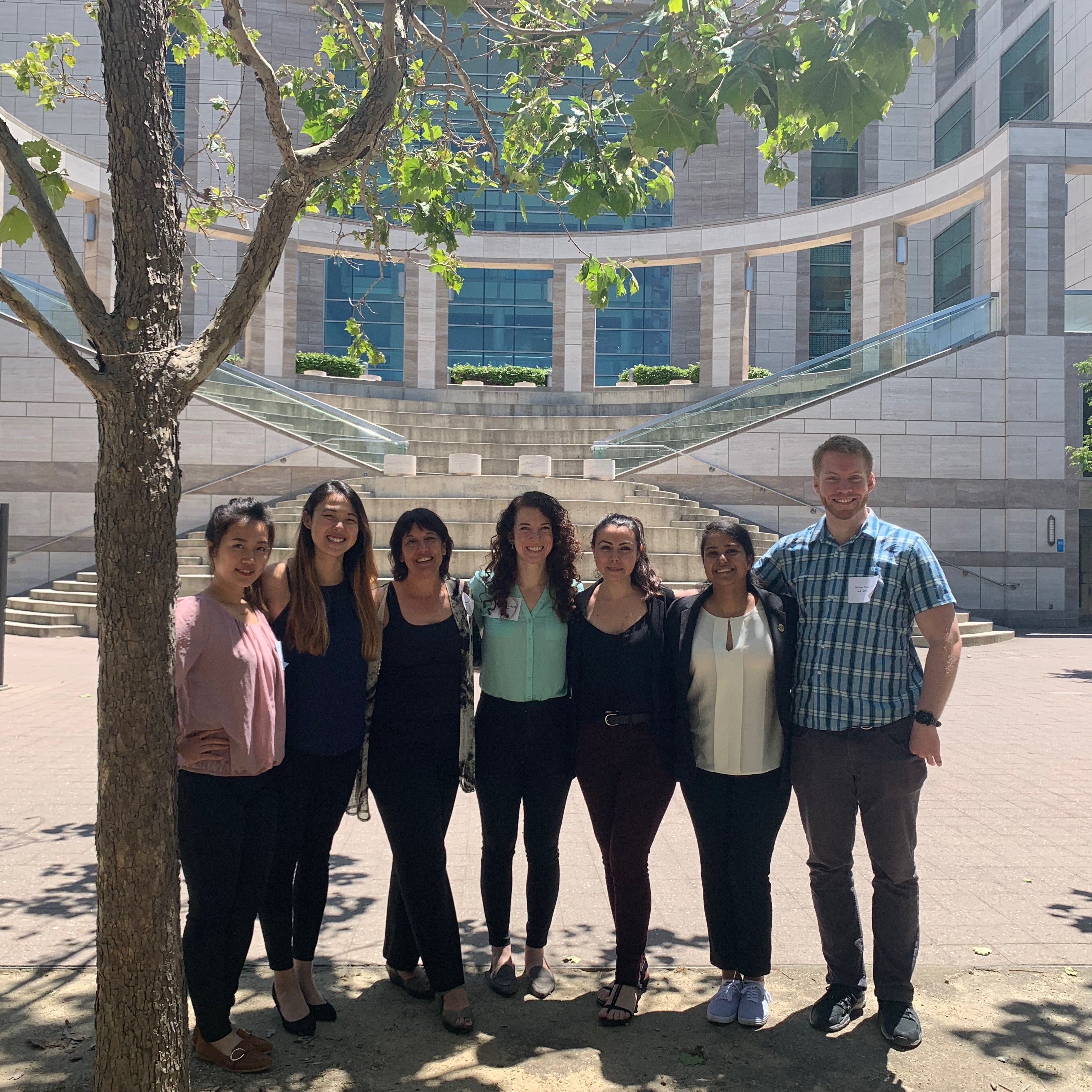Members of Sheila David’s Laboratory at UC Davis attended the Chemical Biology in the Bay Area (CBBA) Day on June 1st, 2019, which was hosted by UCSF in San Francisco. This event brought in graduate student presenters from UC Davis, UC Santa Cruz, UC Berkeley, and UCSF. The keynote speaker was Anthony Ogawa from Merck. Merve Demir from our lab presented a research poster titled, “Elucidating Additional Features of 8-Oxo-guanine Recognition and Adenine Excision Mechanism by the DNA Glycosylase MutY.” The speakers were consistently excellent throughout the day, touching on a broad range of topics within the wide world of chemical biology. We all had a great time. Cheers to all of the presenters and volunteers that helped run the conference!
